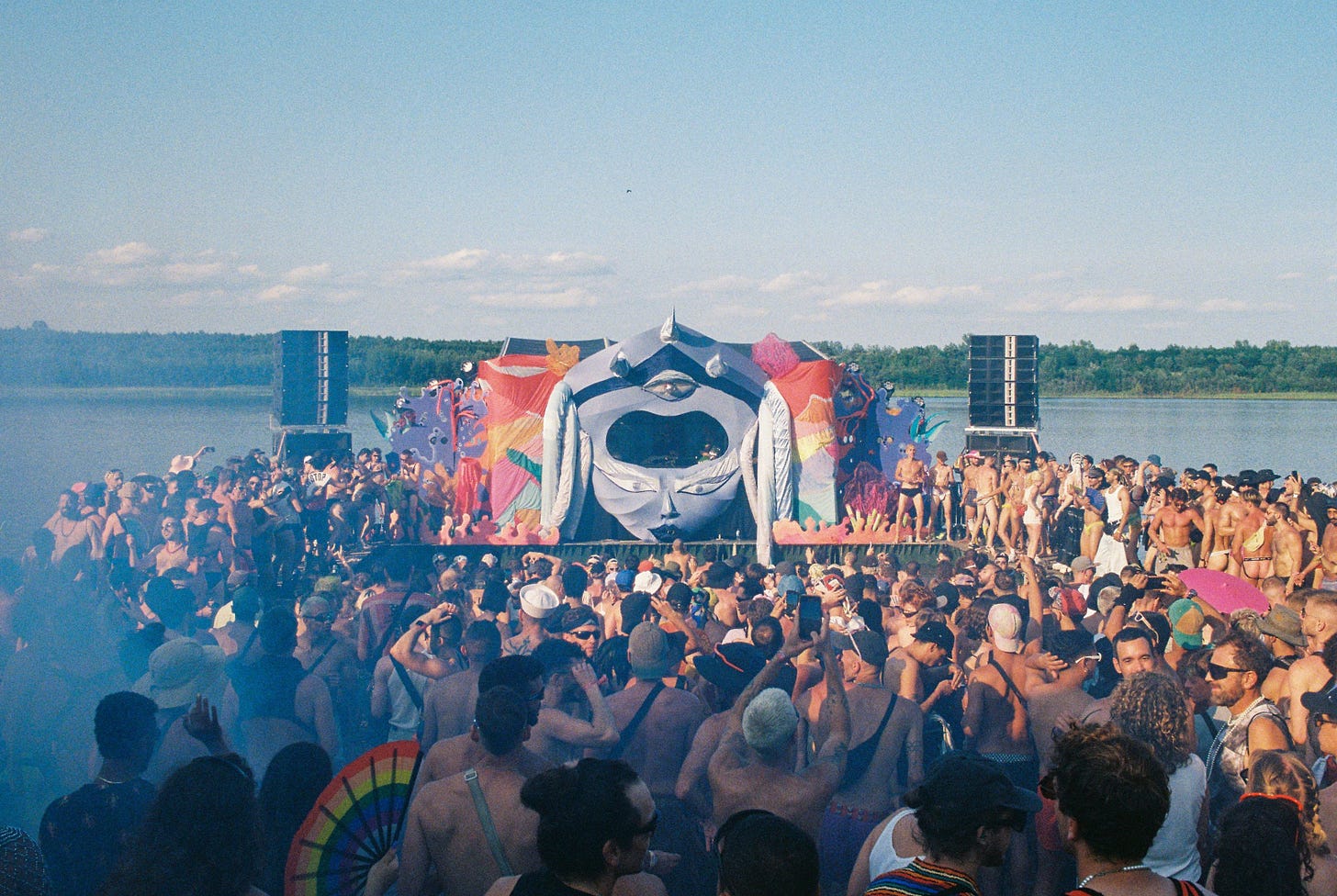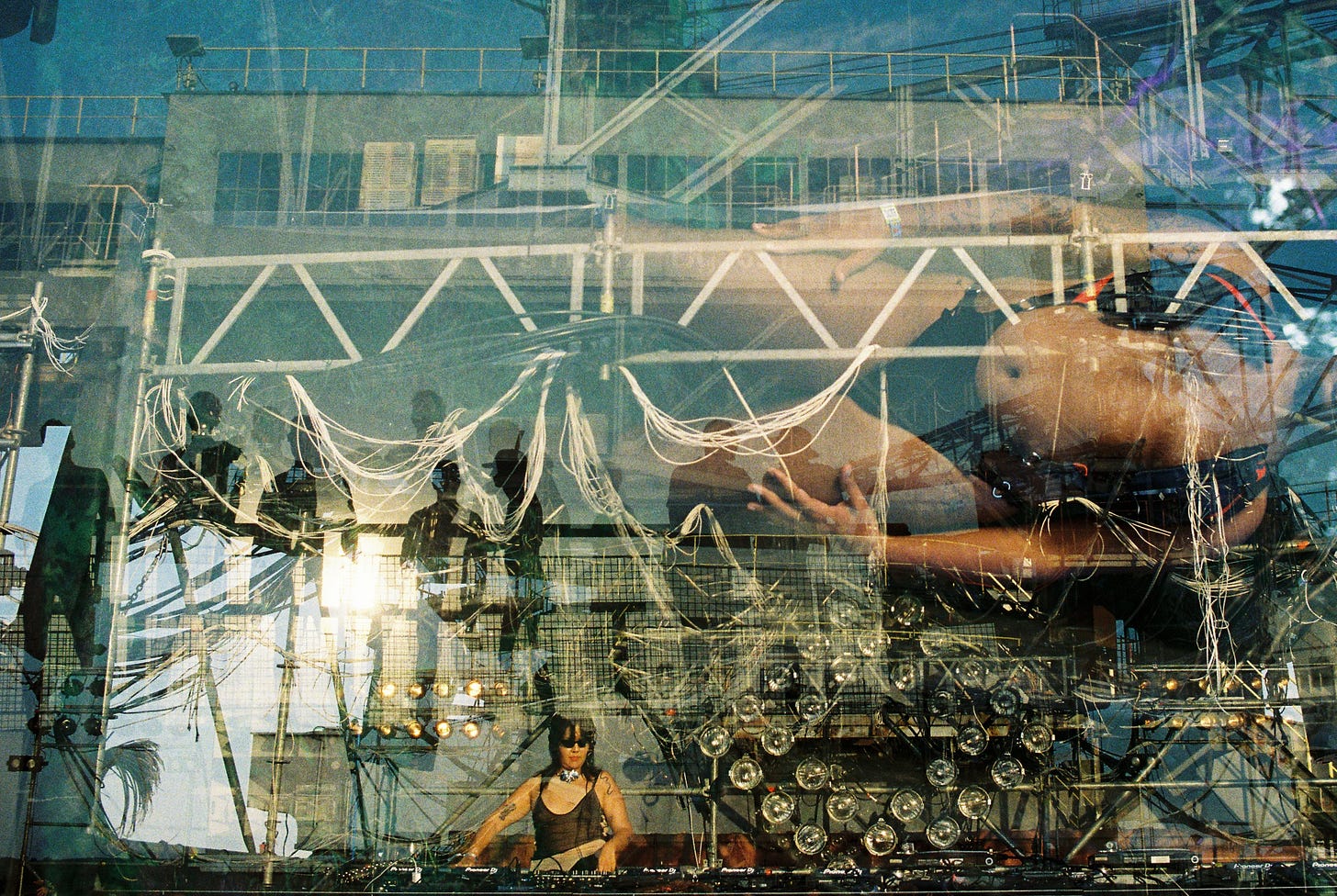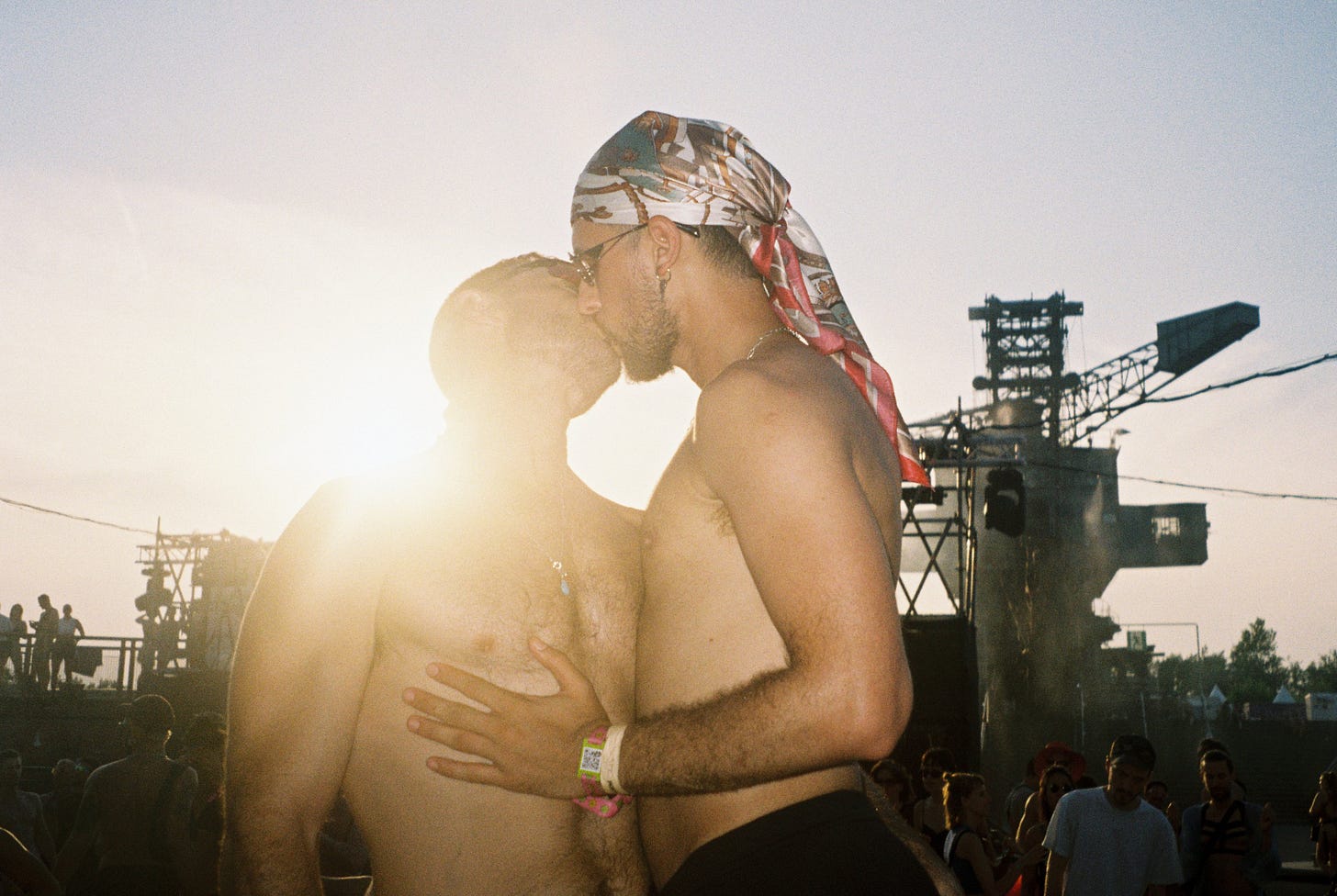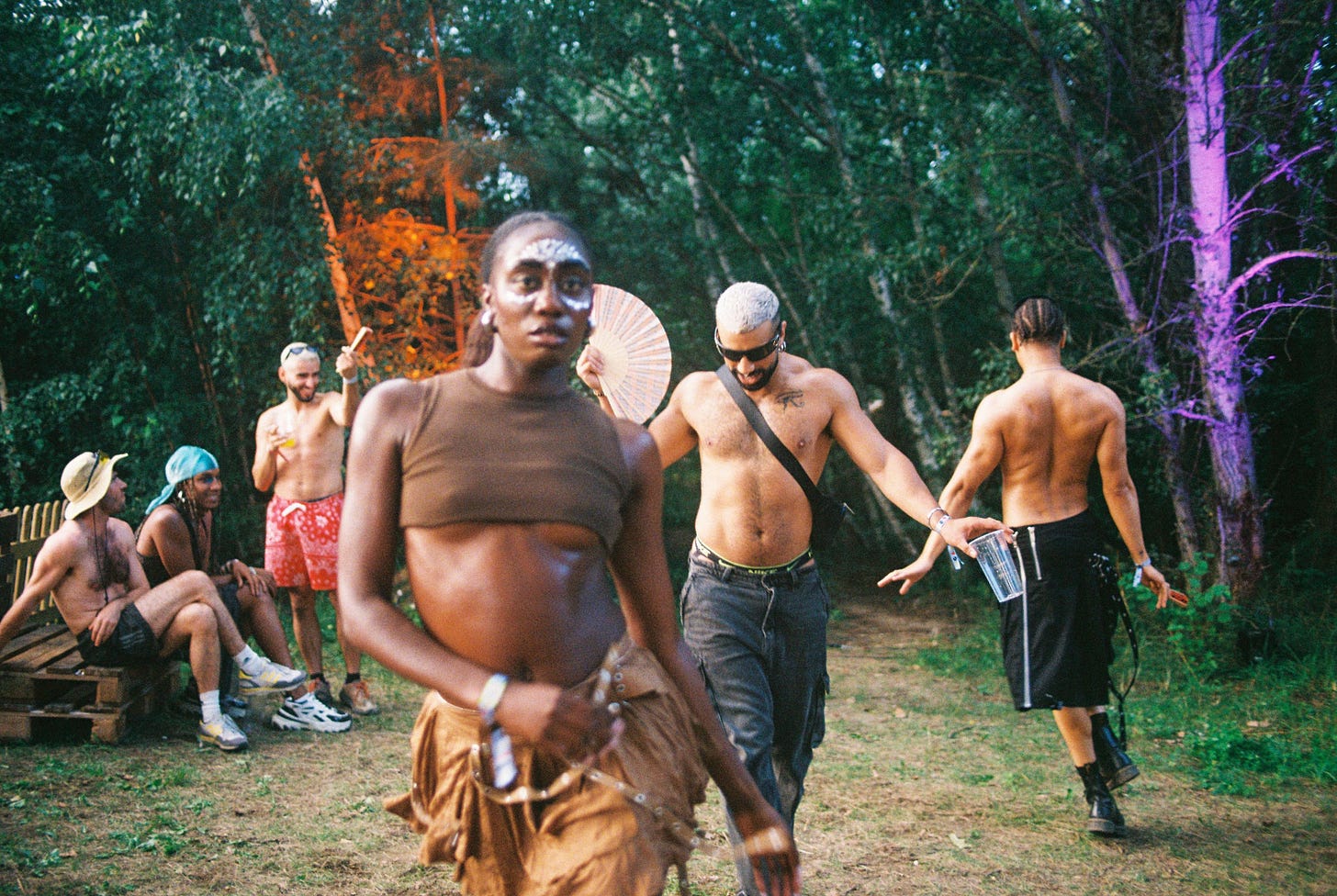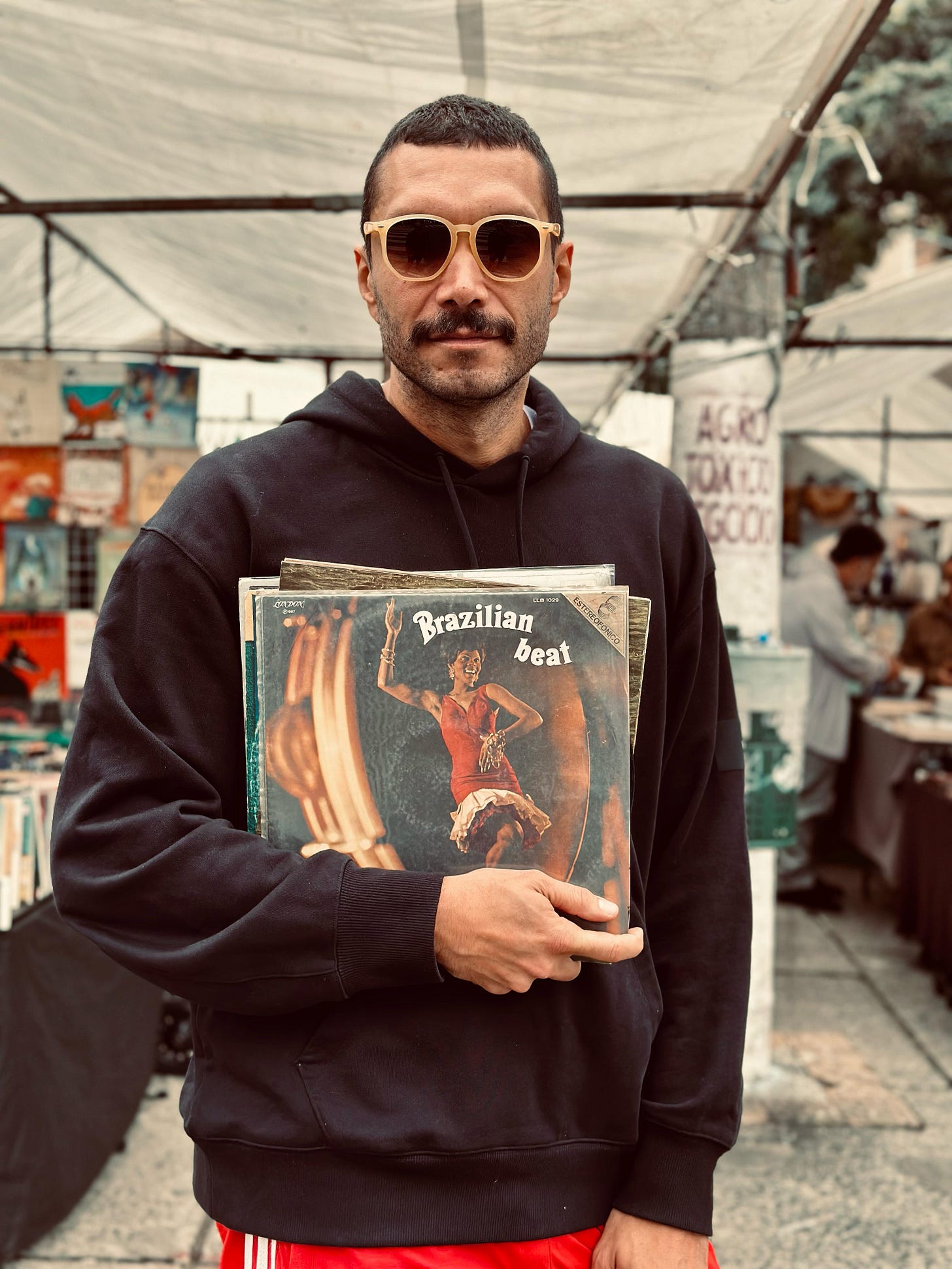The Next Day Interviews: Rafael Medina
Documenting the energy of festivals through photography
For those following our guide, we have news. We're launching a series of special editions featuring interviews with people who inspire us and are connected to the cultural events we highlight. Whether they’re artists, curators, theater or film directors, musicians, DJs, photographers, and more, these creatives will also share some of their favourite and most inspiring spots in the city and its surroundings.
Summer's officially here, and festival season is in full swing. We spoke with Brazilian photographer Rafael Medina, who shared his impressions and creative process behind documenting music festivals.
We hope you enjoy it!
Mateus
Rafael Medina is a photographer based between São Paulo and Berlin. His work focuses on documenting the music scene, nightlife, and capturing portraits that celebrate sexuality and bodily diversity. His photographs investigate memories, traces, and other temporal relationships within club culture and queer life from the perspective of those involved in this context.
Rafael Medina shared his impressions and creative process in documenting music festivals with us.
Mateus Furlanetto (MF): You’re known for documenting the music scene, nightlife, and portraying bodies and sexualities in a very free and affectionate way. How was your experience photographing the WHOLE Festival?
Rafael Medina (RM): WHOLE is my playground. I’ve been photographing the festival since its first edition in 2017, right after I arrived in Berlin. Back then, there were maybe 300 to 500 people. Today, it’s over 7,000. It’s amazing to witness that transformation. WHOLE is a summary of everything I do. It’s where I find the audience I want to photograph, within an environment known as “queer utopia.” It’s always the highlight of my year.
MF: What makes WHOLE different from other festivals?
RM: There’s this sense of queer utopia. At any festival, you’ll feel a certain freedom, but WHOLE goes beyond that — it’s a space that exists outside capitalist, patriarchal logic. What struck me from the beginning was this sense of community. It felt like everyone there was either my friend or a friend of a friend. There was solidarity, a certain beauty to it. Today, with the festival’s growth, that has shifted a bit. There are more distinct groups — French queers, Americans, Brits — which brings different dynamics. But music still has that unifying power. Even with the fragmentation, cooperation remains.
MF: What’s your approach as a photographer at the festival?
RM: I’m not interested in covering the festival objectively, like a journalist would. My perspective is that of someone who participates. I want to show my subjective view — how I perceive the space as I dance, live at the festival, and meet people. My photography comes from that emotional place. That’s why there are moments when I shoot a lot, and others when I’m just enjoying. I usually use the first day to warm up, to get a feel for the space.
MF: In your photos, we see wide scenes, spontaneous portraits, overlays. How does your creative process work?
RM: I think in image sets, like narratives. I like to move through the space — from wide views to the middle of the dancefloor. I try to translate that dizzying festival experience: through music, encounters, the feeling of immersion. The overlays come from an attempt to capture that disorientation, the trance. Even in more “candid” shots, there’s always an exchange. I often say that sometimes I shoot first, ask later; sometimes I ask first, shoot later. But consent is essential. If someone’s not comfortable, I delete the image. Trust is everything.
MF: What are the most common reactions people have when being photographed?
RM: Most people feel at ease, especially because I build a relationship based on respect. But for example, once a guy was dancing, I photographed him, and he later asked me to delete it because that moment had emotional value for him. And I understood. It takes sensitivity to know what can or can’t be shared.
MF: How do you view the importance of visual documentation in this context?
RM: Photography has a historical function. The “no photos on the dance floor” policy makes sense, of course. But if no one documents anything, in 20 years we won’t know what the queer scene in Berlin looked like in the 2020s. I love seeing, for example, photos of the Yugoslav punk scene in the ’80s. I believe we have the right — and the duty — to record our spaces and our stories. Cell phone cameras have become tools for instant communication, but real photography is something else. It’s about creating memory, documenting.
MF: How do you compare this work at festivals to your more directed photo shoots?
RM: They’re different but complementary processes. At festivals, I’m documenting a collective energy, a space. In photo shoots, I start from personal questions. My first project, Flesh, for instance, came from discomfort with the hegemonic aesthetic standard of gay eroticism. I wanted to show other bodies, other kinds of beauty. My most recent project is about LGBTQIA+ aging, the Exhibition “The Deepest Is the Skin: Aging LGBT+” at the Museum of Sexual Diversity in São Paulo, Brazil. It’s a theme that moves me — for a long time, I rarely saw images of queer people over 60. This project aims to create that visual archive, to show that we’re aging, surviving, and that there’s beauty and power in that process.
You can see more photos of the WHOLE Festival 2024 edition here.
Rafael Medina recommends:
WHOLE Festival a space-time portal for three days of music, community, and celebration — a much-anticipated annual pilgrimage for queer people from around the globe. In its seventh edition, the festival happens from 18 to 21 July 2025 in Ferropolis, the iron city of Gräfenhainichen, just a few hours south of Berlin. Tickets: Weekend Ticket: €265 / Sunday Ticket: €150.
C/O Berlin is a cultural institution dedicated to photography and visual media. It showcases exhibitions by established artists while actively supporting emerging talent. Beyond exhibitions, C/O Berlin serves as a dynamic meeting place by hosting artist talks, panel discussions, film screenings, and guided tours. Daily 11 am –8 pm. Amerika-Haus, Hardenbergstrasse 22–24, 10623 Berlin. Tickets: €12
Schwules Museum stands as the most important international center for researching, preserving, and presenting the culture and history of queer individuals, sexual and gender diversity, and is a sought-after collaborative partner for museums, universities, cultural support institutions, artists, and activists from around the world. Monday, Wednesday, Friday: 12 pm–6 pm, Thursday: 12 pm–8 pm, Saturday: 2–7 pm, Sunday: 2–6 pm, Tuesday: closed. Lützowstrasse 73, 10785 Berlin. Tickets: €10
Silver Future since 2027 kings, queens and criminal queers and their friends from Berlin and all over the world hang out there. Monday to Saturday from 5 pm. Closed on Sundays. Weserstrasse 206,12047 Berlin.





